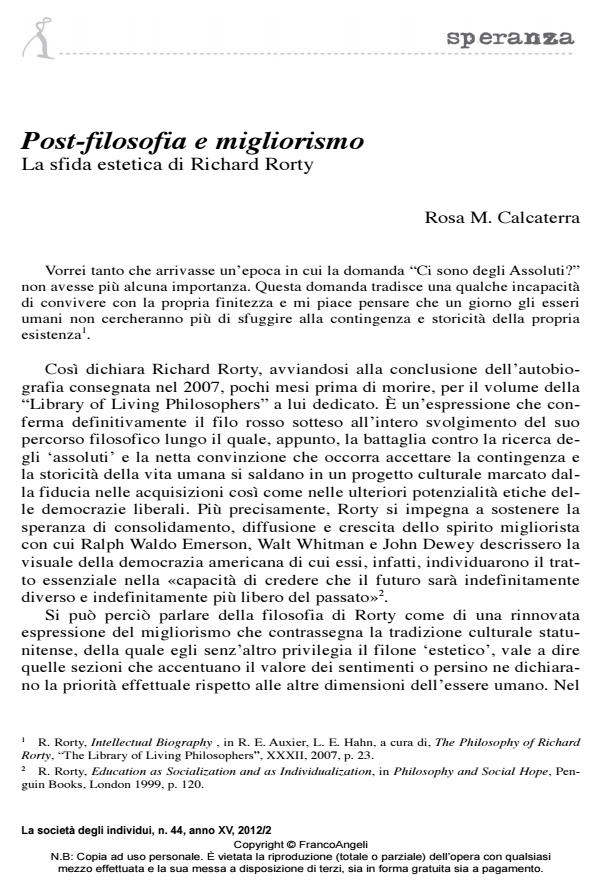Post-Philosophy and meliorism. The aesthetic challenge of Richard Rorty
Journal title SOCIETÀ DEGLI INDIVIDUI (LA)
Author/s Rosa M. Calcaterra
Publishing Year 2012 Issue 2012/44
Language Italian Pages 18 P. 7-24 File size 355 KB
DOI 10.3280/LAS2012-044001
DOI is like a bar code for intellectual property: to have more infomation
click here
Below, you can see the article first page
If you want to buy this article in PDF format, you can do it, following the instructions to buy download credits

FrancoAngeli is member of Publishers International Linking Association, Inc (PILA), a not-for-profit association which run the CrossRef service enabling links to and from online scholarly content.
The centrality of the temporal category of the future and the importance of «human conversation» are the basic aspects of Rorty’s version of American democratic thought and pragmatist philosophy. Reiterating the basic assumptions of U.S. meliorism, Rorty shows the convergence of authors such as John Dewey and William James and the European anti-foudationalist instances, in view of a radical rethinking of philosophical practice. Philosophy should not be intended as a search of the ultimate substance of reality but rather as an edifying commitment based on the criterion of Social Hope. The authors of pragmatism are freely revisited by Rorty, who shares with James and Dewey particularly the confidence in the experimental and constructing capacities of human intelligence as well as in the individuals’ cooperation, putting aside Peirce and his important notion of "infinite hope".
Rosa M. Calcaterra, Post-filosofia e migliorismo La sfida estetica di Richard Rorty in "SOCIETÀ DEGLI INDIVIDUI (LA)" 44/2012, pp 7-24, DOI: 10.3280/LAS2012-044001